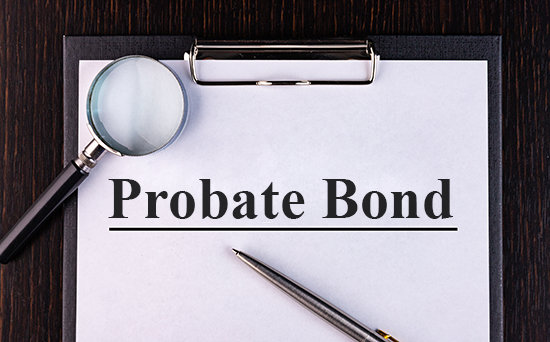When an individual dies, their estate is managed and distributed according to their will or state laws. A probate bond, also known as a fiduciary bond or estate bond, or sometimes an “executor bond”, plays a crucial role in this process. This type of bond ensures that the individual responsible for managing the estate, a fiduciary, fulfills their duties ethically and by the law.
What is a Probate Bond?
A probate bond is a type of surety bond to protect an estate and its devisees (beneficiaries, creditors, etc.). To illustrate, an executor, or personal representative, is an estate’s fiduciary and is responsible for marshaling and safeguarding an estate’s assets. This bond serves as a financial guarantee that the fiduciary will manage the estate properly. For instance, the payment of debts and distribution of assets to the rightful beneficiaries as intended.
When is a Probate Bond Required?

State statute (law) or a probate court may require this type of bond in several situations:
- Named in a Will. If the deceased has left a will, they may have named an executor or personal representative to manage their estate. State statute or the probate court may require the executor or personal representative to obtain a bond before they can begin their duties. Some wills can waive the requirements for a probate bond. It’s also usually up to a judge’s discretion on whether or not to waive a bond requirement.
- No Named Executor. If there is no named executor, or the named executor is unable or unwilling to serve, the court may appoint a fiduciary to manage the estate. In this case, the court typically requires the appointed fiduciary to secure a probate bond.
- Absence of Close Relatives. When no spouse or child will take on the estate, the court may appoint an unrelated fiduciary. The court will usually require this individual to obtain a probate bond to guarantee the proper handling of the estate.
Why is a Probate Bond Important?
The primary purpose of such a bond is to protect the estate’s beneficiaries. It ensures that the fiduciary acts in the best interest of the estate and its beneficiaries. In summary, managing assets, paying debts, and distributing inheritances according to the law. If the fiduciary fails in their duties through mismanagement, fraud, or negligence, the bond provides financial recourse for the beneficiaries, allowing them to recover lost funds.
A probate bond is a critical tool in the administration of estates. The bond ensures that fiduciaries carry out their responsibilities ethically and in compliance with the law. Whether named in a will or appointed by the court, fiduciaries secure a bond to protect the interests of the estate and its beneficiaries. This bond not only provides peace of mind but also upholds the integrity of the probate process.
Thank you to the National Notary Association for their assistance with this article.
More…
Estate Talks Podcast: Executorium’s Estate Talks: Understanding Probate Court – For Executors The Basics of the Probate Process and Probate Court
Podcast Section regarding Probate Bonds at 19:30

